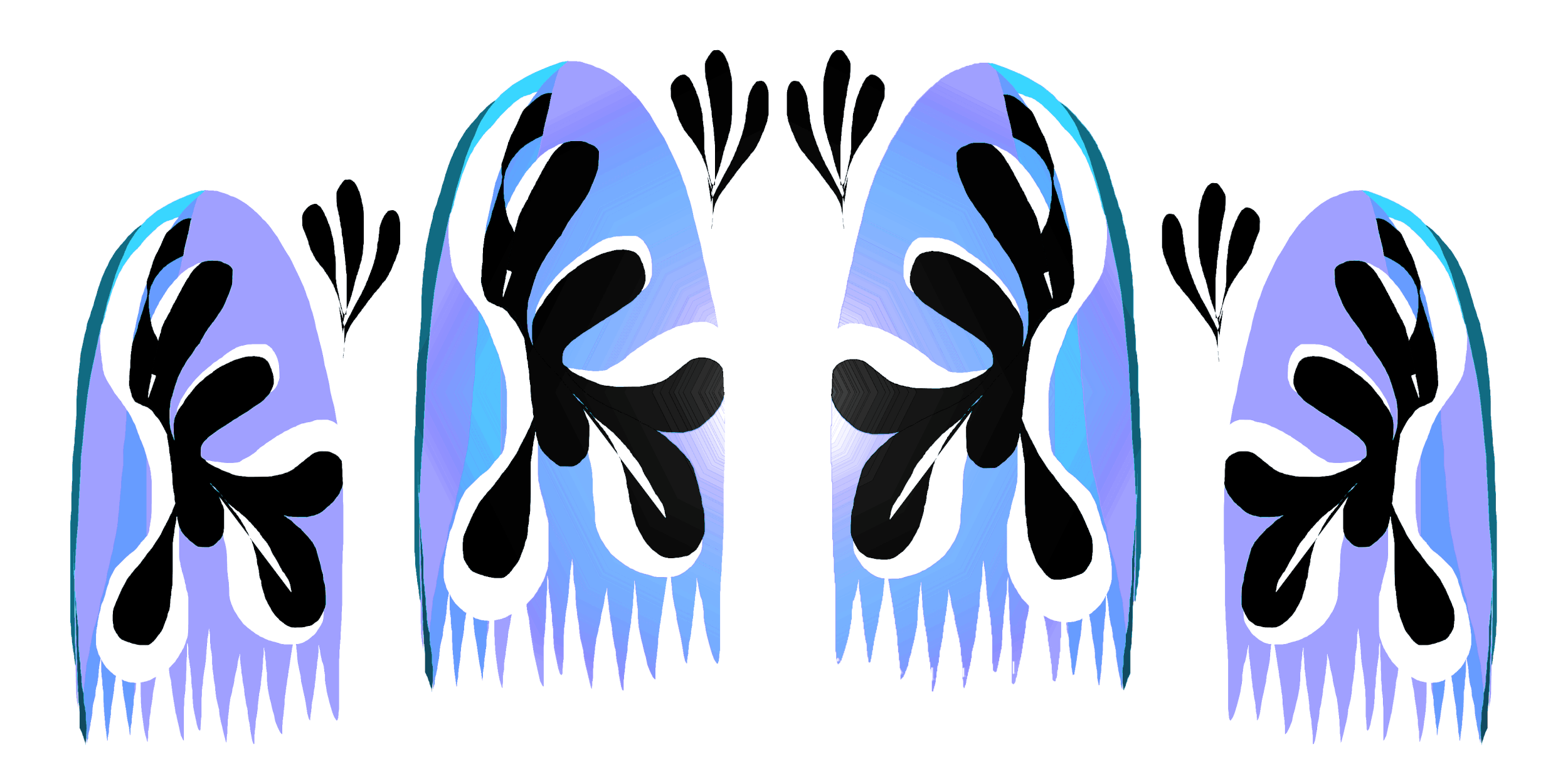From Incel to Asexual: Unlearning Patriarchal Maleness
Not so long ago, a friend of mine told me that people that knew me from school were surprised to hear that I was interested in feminist topics. The reasoning given was that they believed that I thought of women as inferior to men during school. My friend was quick to dismiss this narrative, and although I believe that it is based in a misunderstanding, I couldn’t stop thinking about it. Why was my excitement for feminist theory not that surprising to me but surprising to everyone else? And what did it say about my relationship to maleness and sexuality?
So, growing up, there were a lot of narratives around maleness that made my life harder. One needs to climb the relationship escalator, otherwise one isn’t “really a man”, for example. One needs a girlfriend before one is considered grown up. If one hasn’t fucked before, one can’t be a man. Women and men couldn’t be friends. Men were more rational than women. Those narratives made my life a living hell. But I believed in them. I only had to accomplish the targets set for my maleness, I told myself. I was owed that position, I told myself. I deserved the recognition as an equal man that I lacked so desperately. I needed to become the man patriarchal society sees as worthy. I needed to protect this little fragile masculinity with all these grand narratives.
The problem was, I wasn’t interested in relationships or sex for themselves. It was the status that patriarchal society promises man that I was interested in. Deep down, I knew that there was much more separating me from my male peers, which I can now name as neurodivergence. But in my desperation to deal with the world I was born into, I indexed into maleness to cope. This was the one area society told me how I could fix it. I needed to become a man. Have a girlfriend, have sex and all that stuff. bell hooks highlights in her book “The will to change. Men, Masculinity, and Love” that domination of women through sex and relationships is seen as a cornerstone of patriarchal maleness [1].
But, because I am asexual and aromantic, it didn’t work for me at all. I didn’t even know what sexual and romantic interest would look like. I knew I would be weird about both romantic and sexual relationships. I knew I had boundaries that another person might not respect. I was afraid of this happening, but also desperately needed the approval that comes with this type of relationship. It wasn’t really helping that within our dominant societal understanding, woman and man can’t be friends. Their relationship is always looked at through the lens of romantic and sexual relationships first. Not so long ago- I still didn’t identify as asexual, but already studying feminist theory - a person I know from school theorized about the woman I would one day marry in front of a lot of old classmates. As you can see, friendship is devalued, thus “only” becoming friends is a disappointment in the eyes of dominant society. It didn’t help that in school, I didn’t know what romantic or sexual attraction looks like and assumed that I am attracted to these women because “that’s what you are supposed”. I blamed women for being so complicated. I also blamed the other guys for being so annoying about sex, but this wasn’t something I could articulate. So, I stuck to the anger at women. I wanted the benefits that allonormative patriarchal society grants men that fit in without having to participate in the relationship portion of it. This made women an object to my desire to be recognized as a man. Fear of boundary violations, having boundaries that were unintelligible made women also the likely perpetrator of said boundary violations in my eyes. Knowing that a refused hug from an autistic person like myself would lead to mockery, what would happen in sexual and romantic situations? A confused Aro-ace man following dominant narratives around maleness can look a lot like an incel. The potential of the aro-ace person was lurking beneath, not having a way to make sense of the world, not really formed yet.
It made me weird. Me not understanding what was happening made me uncomfortable to be around. I misunderstood everything and anything when it came to romantic and sexual relationships and thus my relationship with women as a whole. I never was or attempted to be in romantic or sexual relationships. I made up crushes to fit in, since one can’t achieve the desired maleness without taking the first step towards a relationship. I was always glad when nothing happened, doing as little as possible myself while still performing what I had learned looks like romantic and/or sexual interest to the best of my very weak abilities. I was also angry at them for denying me the position I was “owed”. I was one confused mess, wanting and fearing sexual and romantic settings at the same time. But buying into the narratives around maleness kept me angry and kept me busy. Only by unlearning these narratives I developed a healthier relationship to maleness, sexuality and the women around me. It is always a process though, investing in dominant maleness and the “promised land” of recognition as a man through sex and romance leaves its marks and takes time to unlearn.
It wasn’t as surprising to me as to other people around me that I enjoyed feminist theory. I knew I had unfinished business with society and our expectations around sexuality and gender. The social scripts I had been fed by society were not useful. They didn’t help me understand myself or the world around me better. All they made me was confused and angry. People assumed I was comfortable in my position, a heterosexual man just being complicated around women. In fact, I was very uncomfortable in my position, an asexual man in the making that wanted to understand what was going on. Feminist theory delivered explanations that helped me understand the world. Dominant society didn’t.
What I want to argue that it would be wrong to say that I really was just a confused aro-ace person, who took questionable ideas to make sense of the world. I really believed these toxic norms around sexuality and masculinity. I embraced them, yet unable to perform them.
It is a common phrase in the asexual community to say that incel and asexual are not compatible indeed even polar opposites from another. Megan Caroll tweeted that “"asexual incel" is an oxymoron. Asexual people experience little to no sexual attraction. Asexuality is not synonymous with celibacy. The term *involuntarily* celibate implies incels experience normative sexual attraction” [2]. While I believe that it is important to state that asexuality and incel ideology are not compatible and that asexuality and incel ideology should not be conflated with each other, the reasoning seems off to me. Men chasing the status that society grants people and embracing patriarchal ideals about masculine sexuality does not necessitate that they experience sexual attraction. The asexual community explains that people can have sex for different reasons, not just because of sexual and romantic attractions. Well, one reason can be endorsing dominant maleness and its connection to sex. Not every reason is a good one. Not every reason should be endorsed. Asexuality and incel ideology are polar opposites, but not because of the attraction one feels. A person that does not feel sexual attraction can be “involuntary celibate”, can be sexist, racist etc. Being an incel does not necessitate sexual attraction. This doesn’t mean that all incel are asexual either. Most of them are heterosexual man, not willing to live in a world where their privilege is threatened. I am arguing that the difference between asexuality and Incel ideology does not lie in sexual attraction. The difference is also not if they are struggling with expectations around sex. The difference, I argue, is that asexuality resists compulsory sexuality and incel ideology endorses it. The asexual community argues that sex has been far to relevant in society, incels lament the loss of the entitlement man get through sex, clinging to old societal norms. Asexuals are often skeptical of gender and its connection to sexuality. Asexuality and incel ideology aren’t the same, they aren’t compatible. People conflating asexuality with incel ideology deflect valuable critique from asexuals by associating it with incels. Yet they both offer explanations for what is wrong with sex in society. They offer scripts around sex that are framed as a critique of the status quo. I believe that Asexuality offers a better and more correct explanations than incel ideology does. I also believe now that patriarchal masculinity and incel ideology that are framed as a critique are not really a critique of the status quo, but the status quo itself. Yet recognizing that they are competing explanatory models people use to understand their own lives, sexuality, maleness and antagonistic relation to societal norms may be valuable in future work on asexuality and men.
I want to argue is that it would be wrong to say that I “really” was just a confused aro-ace person, who took questionable ideas to make sense of the world. I really believed these toxic ideas of sexuality and masculinity. I really was that person. There were aspects of myself that didn’t fit in the narratives I believed in. But I believed these toxic ideals. The aro-ace person couldn’t live at the same time as the incel one. Yet I formed their identities from the same experiences. Looking through the same situation through a different lens is powerful. Better explanations can form a less toxic person. Emphasizing the lessons we can learn from aromantic and asexual perspectives can be really important even for allo people moving forward. Even if I would have felt sexual and romantic attraction during this time, having a perspective that recontextualizes romantic and sexual relationships like aromantic and asexual perspectives do would have been helpful none-the-less.
bell hooks: “The Will to Change. Men, Masculinity, and Love,“ 2004, Washington Square Press.
(https://x.com/MCsociology/status/1525845311008124928). Megan Caroll discusses this in more detail in the comments of the tweet, and I agree with her that on a community level, asexuality and incel movements are not compatible. I still think that her starting argument is a common way for asexual people to distance themselves from incels, and I wanted to use it as a discussion starter, not a fully formed critique. A lot of points Megan Caroll and others make around the connection between incel ideology and asexuality are right and valuable.





